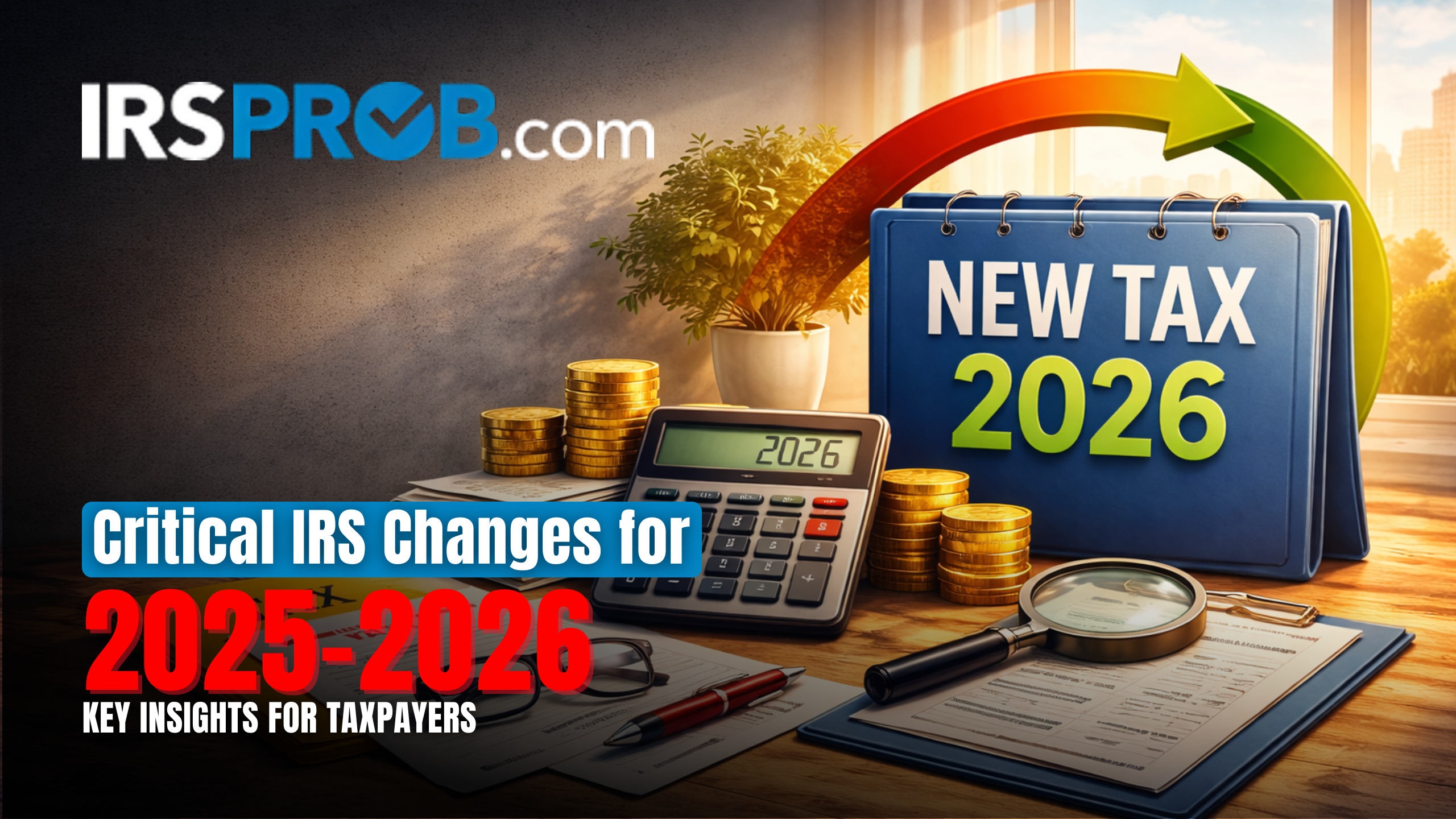
Owning a home feels amazing—until tax season shows up and you’re staring at all those forms. Everyone talks about the mortgage deduction like it’s this magic trick to save money. But the rules have changed under the One Big Beautiful Bill Act (OBBBA), and they’re not going back. Some of the updates will help you, others not so much.
So let’s cut through the jargon and talk about what really matters.
1. The $750K Limit Isn’t Moving
Take Sarah, who bought a townhouse in Dallas for $400,000. Her whole loan falls under the cap, so she gets the full deduction. Easy win.
Now meet Josh in San Francisco. His mortgage is $950,000. Thanks to OBBBA, he can only deduct the interest on the first $750,000 of acquisition debt (the cap that the law made permanent). The rest? No break.
If you live in a city where starter homes cost that much, this rule hits hard.
2. Equity Loans Only Count If You Fix the Place
Mike in New Jersey pulled $60,000 from his home equity to remodel his basement. Deductible. His neighbor Dan used the same loan to pay off credit cards. Helpful for his debt, but the IRS makes it clear in Publication 936 that only loans used to buy, build, or improve your home count.
So, if it makes your house better, you’re fine. If it doesn’t, it won’t fly.
3. A Small Win Arrives in 2026
Here’s a rare piece of good news. Starting in 2026, mortgage insurance premiums (MIP) tied to your loan can be deducted again.
If you bought with less than 20% down, you know how painful those insurance bills feel. Being able to write them off—even partially—helps.
4. Unless You Make Too Much
Of course, there’s a catch. The new MIP deduction begins phasing out once your adjusted gross income (AGI) goes over $100,000 (or $50,000 if married filing separately). By $110,000 AGI, it’s gone completely. You can see the phase-out formula in the tax code itself—with language straight from §163(h)(3)(E)—confirms that mortgage insurance premiums are treated as qualified interest and explains how they fade out based on AGI. (See the code excerpt PDF from the Bradford Tax Institute.)
5. Old Mortgages Still Win
Lisa and her husband bought their home in 2016. Their mortgage is “grandfathered,” which means they can still deduct interest on up to $1 million of debt. Even when they refinanced, the IRS code kept that benefit, so long as they didn’t increase the loan amount.
Sometimes timing pays off more than strategy.
6. Guesswork Won’t Cut It Anymore
This is the part nobody likes, but it’s the truth: you can’t just wing it. A little planning matters. Pair your mortgage deduction with property taxes. Time your remodel so the interest lines up with a year you’ll itemize. And if you’re older, check for senior homeowner bonuses.
Want the official word? It’s all spelled out in IRS Publication 936, but the Bradford Tax Institute also has a very readable OBBBA explainer.
7. The Bottom Line? It’s Mixed.
The OBBBA didn’t kill mortgage deductions, but it reshaped them. First-time buyers may get a bit of relief with insurance premiums starting in 2026. Long-time homeowners keep their bigger deductions if they bought before the cutoff. But if you’re buying now in a high-cost market, the cap is a squeeze.
The Bottom Line at a Glance
The $750K cap is here to stay. If your mortgage is under it, you’re fine; go above and the rest of that interest doesn’t count.
Equity loans only qualify if they actually improve the house. Remodel the kitchen? Yes. Pay off credit cards? Nope.
Starting in 2026, you can deduct mortgage insurance premiums again. A small win for folks who bought with less than 20% down.
But watch your income—those MIP deductions vanish once your AGI tops about $100K (half that if you file separately).
If your loan started before 2017, you’re “grandfathered” in at the old $1M cap. Refinances don’t kill the deal as long as you don’t borrow more.
Planning matters. Line up property taxes, time renovations, and if you’re older, look for homeowner credits you might have missed.
Bottom line: OBBBA didn’t kill mortgage deductions, but it did squeeze newer buyers in expensive markets while giving a little relief to some.
Final Word
Your home isn’t just a loan balance—it’s your safe place, your anchor, maybe even your biggest investment.
That’s why the mortgage deduction matters. It’s not just “tax stuff.” It’s money that stays in your pocket—money you can use for repairs, bills, or simply breathing room.
So don’t wait until April. Run the numbers now, ask questions, and if you’re unsure, talk with a tax pro. Because every dollar you keep is one less you give away—and that feels pretty good.
Take Sarah, who bought a townhouse in Dallas for $400,000. Her whole loan falls under the cap, so she gets the full deduction. Easy win.
Now meet Josh in San Francisco. His mortgage is $950,000. Thanks to OBBBA, he can only deduct the interest on the first $750,000 of acquisition debt (the cap that the law made permanent). The rest? No break.
If you live in a city where starter homes cost that much, this rule hits hard.
2. Equity Loans Only Count If You Fix the Place
Mike in New Jersey pulled $60,000 from his home equity to remodel his basement. Deductible. His neighbor Dan used the same loan to pay off credit cards. Helpful for his debt, but the IRS makes it clear in Publication 936 that only loans used to buy, build, or improve your home count.
So, if it makes your house better, you’re fine. If it doesn’t, it won’t fly.
3. A Small Win Arrives in 2026
Here’s a rare piece of good news. Starting in 2026, mortgage insurance premiums (MIP) tied to your loan can be deducted again.
If you bought with less than 20% down, you know how painful those insurance bills feel. Being able to write them off—even partially—helps.
4. Unless You Make Too Much
Of course, there’s a catch. The new MIP deduction begins phasing out once your adjusted gross income (AGI) goes over $100,000 (or $50,000 if married filing separately). By $110,000 AGI, it’s gone completely. You can see the phase-out formula in the tax code itself—with language straight from §163(h)(3)(E)—confirms that mortgage insurance premiums are treated as qualified interest and explains how they fade out based on AGI. (See the code excerpt PDF from the Bradford Tax Institute.)
5. Old Mortgages Still Win
Lisa and her husband bought their home in 2016. Their mortgage is “grandfathered,” which means they can still deduct interest on up to $1 million of debt. Even when they refinanced, the IRS code kept that benefit, so long as they didn’t increase the loan amount.
Sometimes timing pays off more than strategy.
6. Guesswork Won’t Cut It Anymore
This is the part nobody likes, but it’s the truth: you can’t just wing it. A little planning matters. Pair your mortgage deduction with property taxes. Time your remodel so the interest lines up with a year you’ll itemize. And if you’re older, check for senior homeowner bonuses.
Want the official word? It’s all spelled out in IRS Publication 936, but the Bradford Tax Institute also has a very readable OBBBA explainer.
7. The Bottom Line? It’s Mixed.
The OBBBA didn’t kill mortgage deductions, but it reshaped them. First-time buyers may get a bit of relief with insurance premiums starting in 2026. Long-time homeowners keep their bigger deductions if they bought before the cutoff. But if you’re buying now in a high-cost market, the cap is a squeeze.
Mike in New Jersey pulled $60,000 from his home equity to remodel his basement. Deductible. His neighbor Dan used the same loan to pay off credit cards. Helpful for his debt, but the IRS makes it clear in Publication 936 that only loans used to buy, build, or improve your home count.
So, if it makes your house better, you’re fine. If it doesn’t, it won’t fly.
3. A Small Win Arrives in 2026
Here’s a rare piece of good news. Starting in 2026, mortgage insurance premiums (MIP) tied to your loan can be deducted again.
If you bought with less than 20% down, you know how painful those insurance bills feel. Being able to write them off—even partially—helps.
4. Unless You Make Too Much
Of course, there’s a catch. The new MIP deduction begins phasing out once your adjusted gross income (AGI) goes over $100,000 (or $50,000 if married filing separately). By $110,000 AGI, it’s gone completely. You can see the phase-out formula in the tax code itself—with language straight from §163(h)(3)(E)—confirms that mortgage insurance premiums are treated as qualified interest and explains how they fade out based on AGI. (See the code excerpt PDF from the Bradford Tax Institute.)
5. Old Mortgages Still Win
Lisa and her husband bought their home in 2016. Their mortgage is “grandfathered,” which means they can still deduct interest on up to $1 million of debt. Even when they refinanced, the IRS code kept that benefit, so long as they didn’t increase the loan amount.
Sometimes timing pays off more than strategy.
- Here’s a rare piece of good news. Starting in 2026, mortgage insurance premiums (MIP) tied to your loan can be deducted again.
If you bought with less than 20% down, you know how painful those insurance bills feel. Being able to write them off—even partially—helps.
Of course, there’s a catch. The new MIP deduction begins phasing out once your adjusted gross income (AGI) goes over $100,000 (or $50,000 if married filing separately). By $110,000 AGI, it’s gone completely. You can see the phase-out formula in the tax code itself—with language straight from §163(h)(3)(E)—confirms that mortgage insurance premiums are treated as qualified interest and explains how they fade out based on AGI. (See the code excerpt PDF from the Bradford Tax Institute.)
5. Old Mortgages Still Win
Lisa and her husband bought their home in 2016. Their mortgage is “grandfathered,” which means they can still deduct interest on up to $1 million of debt. Even when they refinanced, the IRS code kept that benefit, so long as they didn’t increase the loan amount.
Sometimes timing pays off more than strategy.
Lisa and her husband bought their home in 2016. Their mortgage is “grandfathered,” which means they can still deduct interest on up to $1 million of debt. Even when they refinanced, the IRS code kept that benefit, so long as they didn’t increase the loan amount.
Sometimes timing pays off more than strategy.
- This is the part nobody likes, but it’s the truth: you can’t just wing it. A little planning matters. Pair your mortgage deduction with property taxes. Time your remodel so the interest lines up with a year you’ll itemize. And if you’re older, check for senior homeowner bonuses.
Want the official word? It’s all spelled out in IRS Publication 936, but the Bradford Tax Institute also has a very readable OBBBA explainer.
7. The Bottom Line? It’s Mixed.
The OBBBA didn’t kill mortgage deductions, but it reshaped them. First-time buyers may get a bit of relief with insurance premiums starting in 2026. Long-time homeowners keep their bigger deductions if they bought before the cutoff. But if you’re buying now in a high-cost market, the cap is a squeeze.
The OBBBA didn’t kill mortgage deductions, but it reshaped them. First-time buyers may get a bit of relief with insurance premiums starting in 2026. Long-time homeowners keep their bigger deductions if they bought before the cutoff. But if you’re buying now in a high-cost market, the cap is a squeeze.
The Bottom Line at a Glance
The $750K cap is here to stay. If your mortgage is under it, you’re fine; go above and the rest of that interest doesn’t count.
Equity loans only qualify if they actually improve the house. Remodel the kitchen? Yes. Pay off credit cards? Nope.
Starting in 2026, you can deduct mortgage insurance premiums again. A small win for folks who bought with less than 20% down.
But watch your income—those MIP deductions vanish once your AGI tops about $100K (half that if you file separately).
If your loan started before 2017, you’re “grandfathered” in at the old $1M cap. Refinances don’t kill the deal as long as you don’t borrow more.
Planning matters. Line up property taxes, time renovations, and if you’re older, look for homeowner credits you might have missed.
Bottom line: OBBBA didn’t kill mortgage deductions, but it did squeeze newer buyers in expensive markets while giving a little relief to some.
Final Word
Your home isn’t just a loan balance—it’s your safe place, your anchor, maybe even your biggest investment.
That’s why the mortgage deduction matters. It’s not just “tax stuff.” It’s money that stays in your pocket—money you can use for repairs, bills, or simply breathing room.
So don’t wait until April. Run the numbers now, ask questions, and if you’re unsure, talk with a tax pro. Because every dollar you keep is one less you give away—and that feels pretty good.







